Reinforce your understanding of LPN/LVN nursing skills — and prepare for the NCLEX-PN® exam! Corresponding to the chapters in Foundations of Nursing, 9th Edition, this study guide provides a variety of exercises to help you review, practice, and apply nursing concepts and principles. Review questions make it easier to achieve the chapter objectives from the textbook, and critical thinking activities help you develop clinical judgment skills. Now with Next Generation NCLEX® (NGN)-style case studies and questions, this guide provides you with an effective study tool for the NGN exam.
Study Guide for Foundations of Nursing, 9th Edition
KSh 7,280.00
Reinforce your understanding of LPN/LVN nursing skills — and prepare for the NCLEX-PN® exam! Corresponding to the chapters in Foundations of Nursing, 9th Edition, this study guide provides a variety of exercises to help you review, practice, and apply nursing concepts and principles. Review questions make it easier to achieve the chapter objectives from the textbook, and critical thinking activities help you develop clinical judgment skills. Now with Next Generation NCLEX® (NGN)-style case studies and questions, this guide provides you with an effective study tool for the NGN exam.
2 in stock
Related products
-
Children with Developmental Disabilities: A Training Guide for Parents, Teachers and Caregivers First Edition
KSh 6,370.00This manual is designed as a guide for parents, teachers and caregivers dealing with children up to the age of six who are afflicted by developmental disabilities. The author provides details of more than 400 non-formal activities along with guidelines on how to use them both at home and in pre-school settings.
The book is divided into three sections:
– the first describes a wide range of impairments, disabilities and handicaps along with information on their manifestations and characteristics. The author also outlines steps to handle negative or problem behaviour during training.
– the next section presents a Comprehensive Activity Checklist for pre-school children. All items have been empirically tested and are located on a scale of increasing difficulty.
– the third section comprises two chapters. The first is a `do-it-yourself` activity assistance guide which will be of immense use to trainers, caregivers, teachers and parents. In the last chapter, Dr Venkatesan discusses contemporary problems and issues related to the rights and privileges of persons with developmental disabilities -
Ophthalmic Nursing
KSh 3,500.00The book is, primarily intended for use by the students undertaking nursing course and the nurses engaged in the care of eye patients. It may also be helpful to nurse-tutors, ward sisters and all those involved in teaching the ophthalmic speciality to nursing students.
-
Study Guide for Fundamentals of Nursing, 11th Edition
KSh 8,370.00Get the most from your fundamentals course with the Study Guide for Fundamentals of Nursing! Corresponding to the chapters in Fundamentals of Nursing, 11th Edition, this completely updated study guide helps reinforce your understanding of key nursing concepts through review questions, exercises, and learning activities. New Next Generation NCLEX®-style question types and brief case studies help you study and prepare for your exams — at the same time! With the purchase of a new text, bonus online skills checklists walk you through all of the book’s fundamental nursing procedures.
-
Applying the Nursing Process: A Tool for Critical Thinking
KSh 17,835.00This trusted resource combines the practical guidance students need to understand each phase of the nursing process with an emphasis on critical thinking, focusing on both independent and collaborative responsibilities facing today’s nurses. Using straightforward language, abundant examples, and real case scenarios, the book addresses the nurse’s role as a caregiver and decision-maker in a range of settingsfrom clinic to the home, community, research, and acute care arenas. A new focus and design help readers build essential critical thinking and problem solving skills and apply them within the nursing process framework.
A companion Website provides a variety of tools such as patient self-assessment tool, clinical decision map, NCLEX® resources, and much more.
-
Student Workbook for Essentials of Dental Assisting, 7th Edition
KSh 7,685.00Reinforce your understanding of dental assisting concepts and practice essential skills! With chapters corresponding to the chapters in Essentials of Dental Assisting, 7th Edition, this student workbook provides a variety of exercises and activities to help you master the role and responsibilities of the dental assistant. Learning activities include review questions, competency sheets, and handy flashcards, each applying your knowledge to preclinical and clinical procedures. It’s an ideal study tool to use in dental assisting courses and to prepare for national board and state certification exams!
-
Rehabilitation Techniques for Sports Medicine and Athletic Training 7th Edition
KSh 17,850.00Rehabilitation Techniques for Sports Medicine and Athletic Training, Seventh Edition is the definitive reference for athletic training students and professionals who are interested in gaining more in-depth exposure to the theory and practical application of rehabilitation techniques used in a sports medicine environment.
Dr. William Prentice and his contributors have combined their knowledge and expertise to produce a single text that encompasses all aspects of sports medicine rehabilitation. Featuring more than 1,000 full-color illustrations, 700 high-resolution videos, and an integrated laboratory manual, this newly updated Seventh Edition provides the athletic trainer with a complete guide to the design, implementation, and supervision of rehabilitation programs for sport-related injuries.
The Seventh Edition includes new and updated information on topics including:
• Pharmacology and the role of medication in pain management and performance
• Nutrition and its impact on rehabilitation
• Rehabilitation techniques for the core
• Roles within the rehabilitation team
• Pathomechanics and epidemiology of common injuries
• Psychological considerations and communication with injured patients
• Tips for documentation from Dr. Prentice -
Netter Atlas of Human Anatomy: Classic Regional Approach, International Edition, 8th Edition
KSh 8,000.00For students and clinical professionals who are learning anatomy, participating in a dissection lab, sharing anatomy knowledge with patients, or refreshing their anatomy knowledge, the Netter Atlas of Human Anatomy illustrates the body, region by region, in clear, brilliant detail from a clinician’s perspective. Unique among anatomy atlases, it contains illustrations that emphasize anatomic relationships that are most important to the clinician in training and practice. Illustrated by clinicians, for clinicians, it contains more than 550 exquisite plates plus dozens of carefully selected radiologic images for common views.
Key Features-
- Presents world-renowned, superbly clear views of the human body from a clinical perspective, with paintings by Dr. Frank Netter as well as Dr. Carlos A. G. Machado, one of today’s foremost medical illustrators.
-
- Content guided by expert anatomists and educators: R. Shane Tubbs, Paul E. Neumann, Jennifer K. Brueckner-Collins, Martha Johnson Gdowski, Virginia T. Lyons, Peter J. Ward, Todd M. Hoagland, Brion Benninger, and an international Advisory Board.
-
- Offers region-by-region coverage, including muscle table appendices at the end of each section and quick reference notes on structures with high clinical significance in common clinical scenarios.
-
- Contains new illustrations by Dr. Machado including clinically important areas such as the pelvic cavity, temporal and infratemporal fossae, nasal turbinates, and more.
-
- Features new nerve tables devoted to the cranial nerves and the nerves of the cervical, brachial, and lumbosacral plexuses.
-
- Uses updated terminology based on the second edition of the international anatomic standard, Terminologia Anatomica, and includes common clinically used eponyms.
-
- Provides access to digital content: over 100 bonus plates including illustrations from previous editions and over 300 multiple choice questions.
Also available, alternative versions of the 8th Edition as main editions:
• Netter Atlas of Human Anatomy: A Systems Approach—Same content as the classic regional approach, but organized by organ systems.
• Netter Atlas of Human Anatomy: Classic Regional Approach with Latin terminology
All options contain the same table information and same 550+ illustrated plates painted by clinician artists, Frank H. Netter, MD, and Carlos Machado, MD.
Author InformationBy Frank H. Netter, MD -
-
Applied Theories in Occupational Therapy 2nd Edition by Roseanna Tufano (Author), Marilyn B. Cole (Author)
KSh 11,000.00Applied Theories in Occupational Therapy: A Practical Approach, Second Edition provides a system-based, comprehensive overview of the theories, models, and frames of reference that influence occupational therapy around the world. Esteemed authors Marilyn B. Cole and Roseanna Tufano have updated their foundational text with an evidence-based focus derived from their experiences of more than 30 years teaching theoretical content to students.
Applied Theories in Occupational Therapy: A Practical Approach, Second Edition offers practical templates to help readers learn the key constructs of each theory and assimilate knowledge based on Mosey’s organizational structure. Each theory-based chapter is designed for ease in gathering content knowledge and comparing theories in a distinctive manner. The book includes:
- Summaries of the current trends found in practice, along with external influential models of health and wellness impacting populations of concern
- Exploration of some of the most common occupation-based models around the world. Each model’s holistic conceptual nature is described, including theoretical assumptions and practice guidelines for evaluation and intervention
- Reviews of common frames of reference found in evidence-based practice, which address the secondary and tertiary needs of common populations
In this Edition, learning activities and case-based analyses strengthen the application of theory into current practice contexts. Practical guidelines assist the reader in formulating an evaluation process and determining the relevant intervention strategies that promote occupational participation, engagement, and functioning across the lifespan and the continuum of health.

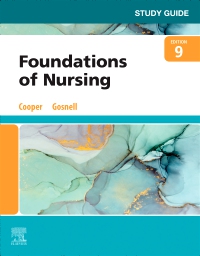
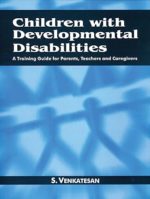
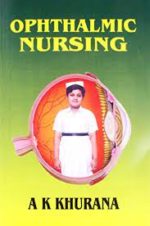
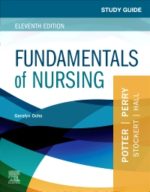
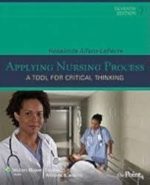
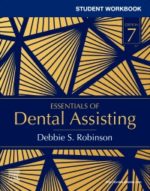
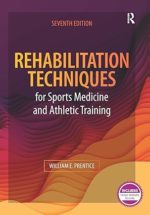
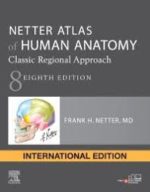
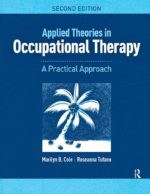
Be the first to review “Study Guide for Foundations of Nursing, 9th Edition”